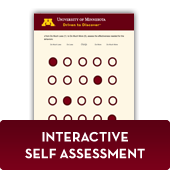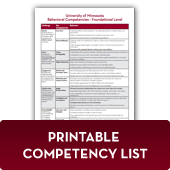Self-awareness is being able to identify your strengths, opportunities for development, and knowing how others perceive you. When it comes to conflict situations, it is important to know how do you typically react, what are your “hot buttons” (i.e., issues, people, and situations that you find especially difficult) and how you manage them.
Beware of Common Conflict Pitfalls
As a supervisor managing conflict, you may feel compelled to “fix things” or blame, or even feel sorry for yourself during a conflict situation, but these behaviors do not lead down a productive path, they only perpetuate the problem and make it worse.
Think about your “go-to” in conflict situations:
Are you taking on the responsibility to fix things for others? You may think or say:
“I want to fix this.”
“I need to solve this for you.”
Are you feeling sorry for yourself? You may think or say:
“Poor me.”
“I wouldn’t have these issues if I had more resources.”
“Why can’t my team just get along?”
Are you placing blame on others? You may think or say:
“It’s all your fault!”
Once you become involved in a conflict situation, be sure to recognize your tendencies for falling into any of these behaviors.This will help you be more objective, which will result in you being able to coach others on finding solutions - without bias or getting weighed down with the emotional strain of someone else’s problems.
Recognize your Weaknesses, Develop your Strengths
Recognizing whether the common conflict pitfalls apply to you is only one part of the equation, as those are the behaviors you should minimize or avoid. Another part is the behaviors you want to develop or enhance. For example, behaviors such as the ability to "maintain productive relationships with others even when faced with conflict" or to "listen respectfully and openly to others regardless of level, position, or background" are essential in managing conflict.

The Leadership and Talent Development team identified key behaviors that are needed to help address the University of Minnesota challenges. These behaviors were then grouped into twelve key competencies:
Increasing Self-Awareness
Knowing how you score in each of the competencies will help you understand where to focus your development efforts. The self-assessment below allows you to rate yourself against key behaviors which then add up to your competency level - the higher the score, the more you can do to improve in that competency.
Next Steps
Consider your scores and priorities, then select two to three areas where you would like to improve. Mastering the conflict management skills listed below will help you develop the respective competencies.
| Competency | Conflict Management Skills |
|---|---|
| Demonstrates an Open Mind | Reflective listening; Feedback, Coaching, Find common ground |
| Increases Access,Diversity & Inclusion | Reflective listening; Find common ground |
| Innovates | Unpack the conflict; Find common ground; |
| Drives Efficiency | Unpack the conflict; Reflective listening; Find common ground |
| Thinks Strategically | Find common ground |
| Aligns Resources | Find common ground |
| Selects & Develops Talent | Feedback, Coaching, Performance management |
| Motivates & Inspires Others | Reflective listening; Build rapport |
| Builds Relationships | Reflective listening; Build rapport |
| Is Resilient and Courageous | Reflective listening; Build rapport |
| Learns & Adapts | Delayed response; Use non-reactive statements; |

